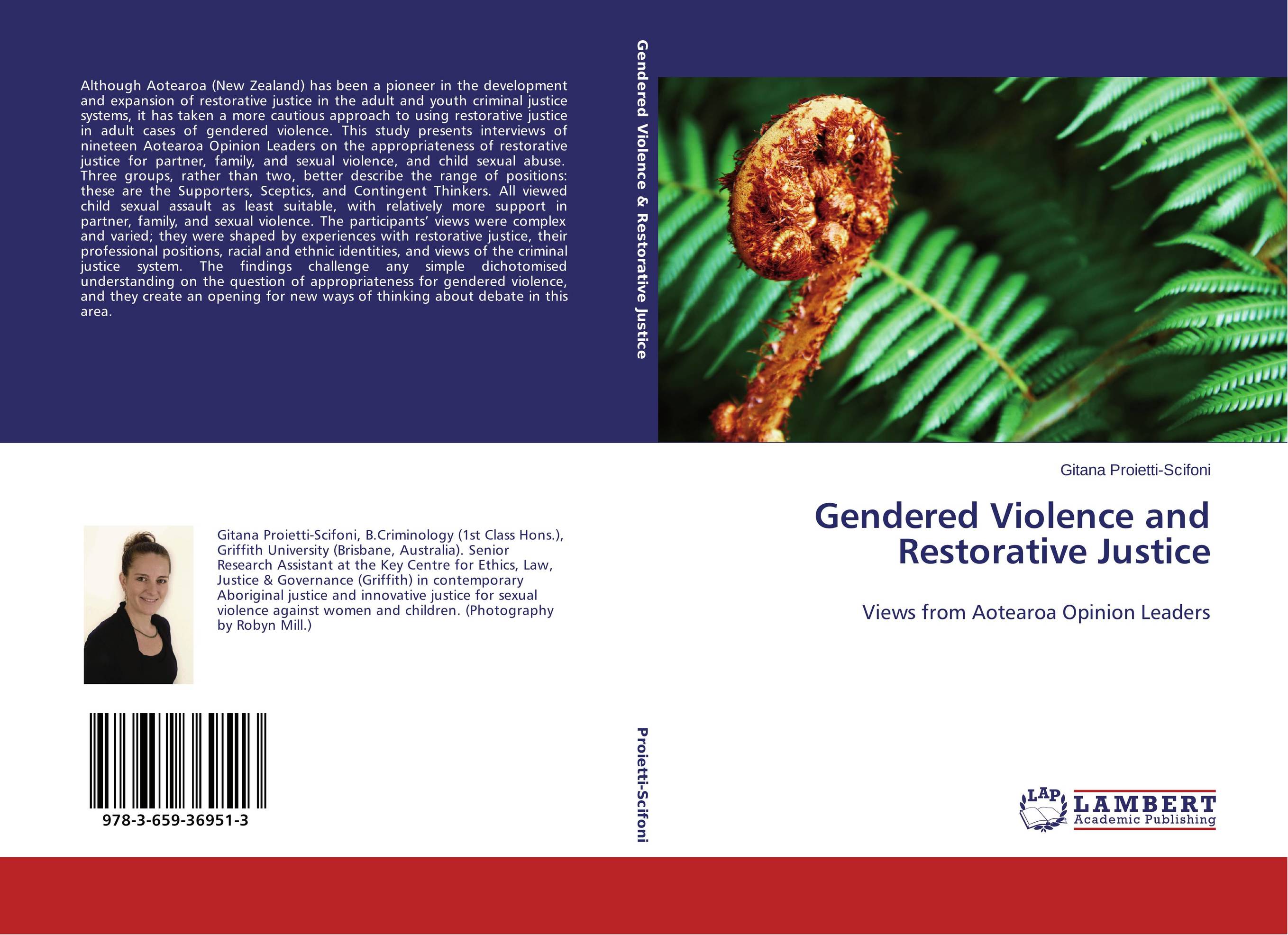| Поиск по каталогу |
|
(строгое соответствие)
|
- Профессиональная
- Научно-популярная
- Художественная
- Публицистика
- Детская
- Искусство
- Хобби, семья, дом
- Спорт
- Путеводители
- Блокноты, тетради, открытки
Gendered Violence and Restorative Justice. Views from Aotearoa Opinion Leaders

В наличии
| Местонахождение: Алматы | Состояние экземпляра: новый |

Бумажная
версия
версия
Автор: Gitana Proietti-Scifoni
ISBN: 9783659369513
Год издания: 2013
Формат книги: 60×90/16 (145×215 мм)
Количество страниц: 112
Издательство: LAP LAMBERT Academic Publishing
Цена: 23129 тг
Положить в корзину
| Способы доставки в город Алматы * комплектация (срок до отгрузки) не более 2 рабочих дней |
| Самовывоз из города Алматы (пункты самовывоза партнёра CDEK) |
| Курьерская доставка CDEK из города Москва |
| Доставка Почтой России из города Москва |
Аннотация: Although Aotearoa (New Zealand) has been a pioneer in the development and expansion of restorative justice in the adult and youth criminal justice systems, it has taken a more cautious approach to using restorative justice in adult cases of gendered violence. This study presents interviews of nineteen Aotearoa Opinion Leaders on the appropriateness of restorative justice for partner, family, and sexual violence, and child sexual abuse. Three groups, rather than two, better describe the range of positions: these are the Supporters, Sceptics, and Contingent Thinkers. All viewed child sexual assault as least suitable, with relatively more support in partner, family, and sexual violence. The participants’ views were complex and varied; they were shaped by experiences with restorative justice, their professional positions, racial and ethnic identities, and views of the criminal justice system. The findings challenge any simple dichotomised understanding on the question of appropriateness for gendered violence, and they create an opening for new ways of thinking about debate in this area.
Ключевые слова: New Zealand, Maori, qualitative, family violence, Sexual Violence, restorative justice, child sexual assault, Opinion leaders, alternative justice, community justice, Interview



